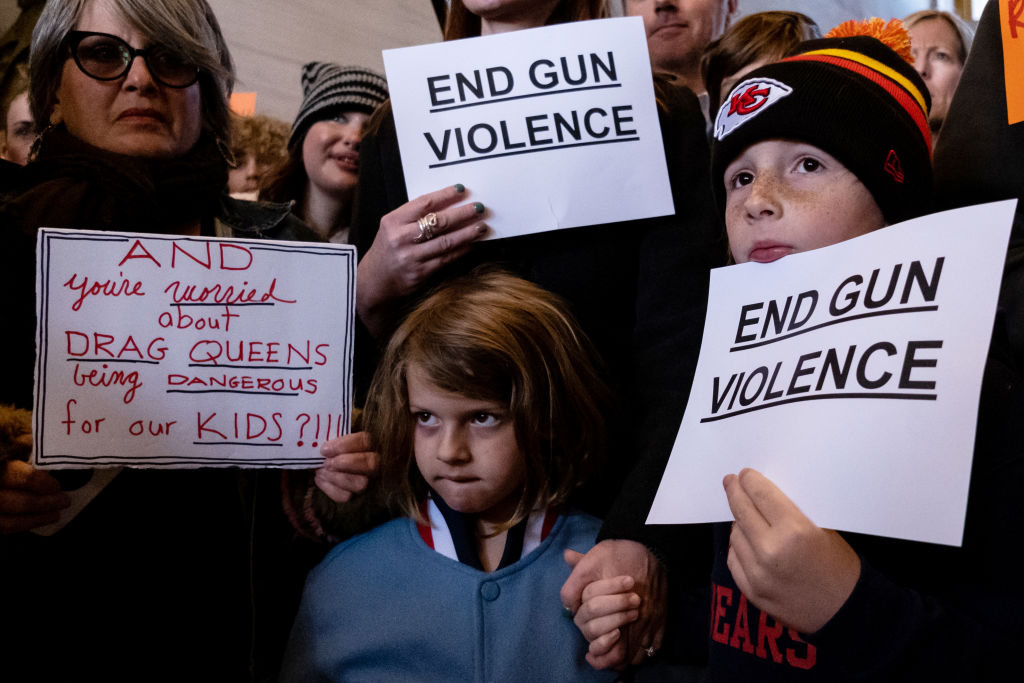If the chemical imbalance hypothesis is wrong, we need to reconnect with the source of contentment.
Generation Baby

The Infantilization of American Adults.
If you walked by the corner of 7th Avenue and Broadway in June 2022, you would have seen a massive billboard that was organized like a triptych. The first panel: “GETTING OLD IS STAYING OLD.” The second panel: “STAY IMMATURE.” And the third panel: “TIME IS GETTING OLD.” The company that sponsored the ad—which sells “intelligent skin and hair products that refuse to take aging seriously”—is called SpoiledChild.
It’s ironic that a billboard in Times Square tells passers-by that time itself is meaningless, but the company’s branding reveals the mindset of the American adult. The median age at first marriage in the United States has risen from 25 for women and 27 for men in 2000 to 29 and 31, respectively, in 2021. At the same time, the median age of first-time motherhood rose from 25 in 2000 to 30 in 2019. Though children’s share of the population has shrunk, the most popular movies are all based on comic books or cartoons. The normal tasks of day-to-day living—like doing the laundry, cooking dinner, sweeping the floor—are called “adulting.” Meanwhile, theme park attendance is increasingly driven by young adults. In other words, somewhere along the way, growing up became passé. Our culture now treats adults like children, and why wouldn’t it when grown adults love it?
This infantilization receives legitimation and justification from the scientistic therapy culture that infects everything. Consider the line—so often repeated as to have become a progressive aphorism— “the human brain does not reach maturity until 25.”
It is certainly plausible, scientific studies notwithstanding, that the human brain is more developed at 25 than at 18. The problem is that the scientific-sounding term “brain development” is used to tell young adults that they are not yet adults and, therefore, cannot commit to anything. Not to jobs. Not to communities. Not to relationships, let alone marriages or families. The abysmal state of American adulthood we see today has largely been caused by a biological determinism that absolves us of responsibility at the expense of our freedom. It is, after all, in commitment and adulthood that we can become ourselves, making the decisions—whom we marry, where we live, what we do for a living—that come to establish who we are as people.
What happens when we are told, in the language of science, that we are effectively incapable of making these very meaningful, life-defining decisions until at least 25? In addition to becoming immature and childish, we become weak and complacent. As a result, we are rendering ourselves incapable of growing up, unwilling to rely on ourselves, and increasingly dependent on external authorities to regulate our every action. There is a reason that “Trust the experts!” has been the slogan du jour turned to by members of basically every elite profession, from doctors to economists to military generals: credentials, rather than age or experience, now define adulthood, to the detriment of all. Indeed, the past two-and-a-half years got as bad as they did for a great many reasons, but it certainly did not help that adults abdicated any responsibility to reality and to humanity—it should be common sense that masks don’t work, that vaccine passports are discriminatory, and that telling people to skip grandma’s funeral is evil.
Common sense, however, is contingent on maturity. If we allow our maturity to be subject to the judgment of unscrupulous elites who have a track record of untrustworthy and corrupt behavior, we cannot expect to see different results than those we are currently seeing. It is absurd that we are still debating whether or not to mask children in schools come Fall 2022, and it is equally absurd that there is even a debate as to whether children should be given irreversible puberty blockers. It is absurd that the President resolutely denies the reality of crippling inflation and insists that the economy is doing well. But doing something about the narrative of lies that envelops us will take people who are willing to be responsible for themselves, who are not weak, who do not bow to nonsense—in other words, we need grown-ups.
The emperor has no clothes—obviously—but to find ourselves a better replacement for him and gain back some semblance of normalcy from our present chaos, we will have to reclaim adulthood.
The American Mind presents a range of perspectives. Views are writers’ own and do not necessarily represent those of The Claremont Institute.
The American Mind is a publication of the Claremont Institute, a non-profit 501(c)(3) organization, dedicated to restoring the principles of the American Founding to their rightful, preeminent authority in our national life. Interested in supporting our work? Gifts to the Claremont Institute are tax-deductible.
Science may be science, but scientists will always be human beings.
The Left needs the metric to justify removing more of your rights.
Too often, experts who are working to "save American democracy" are doing anything but.
The communist history of using children to forward political goals.
The transgender industry may seem unstoppable, but state legislatures are blocking its advance.






